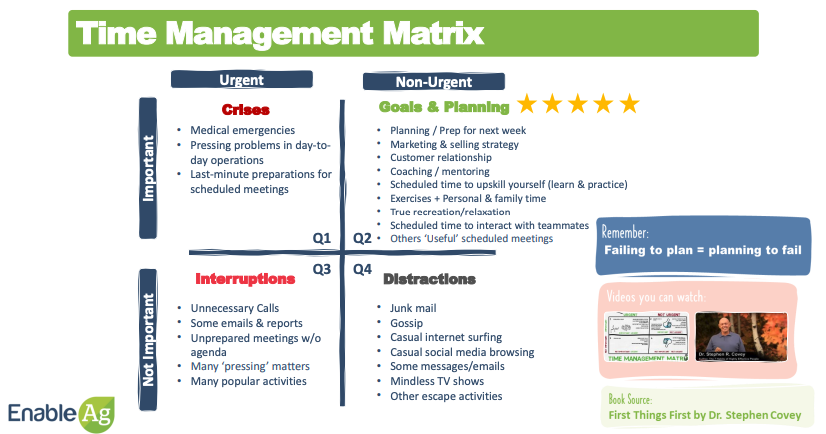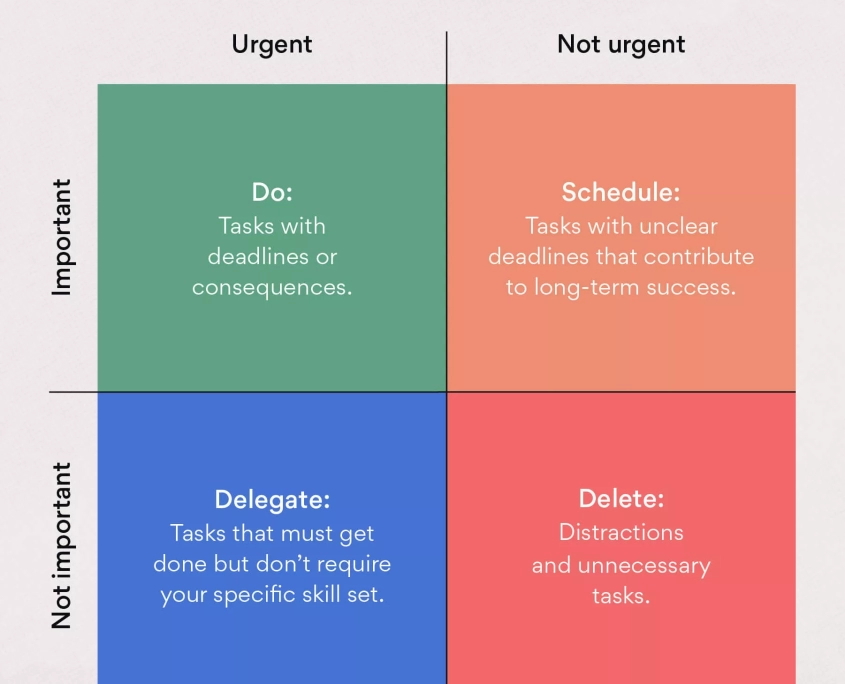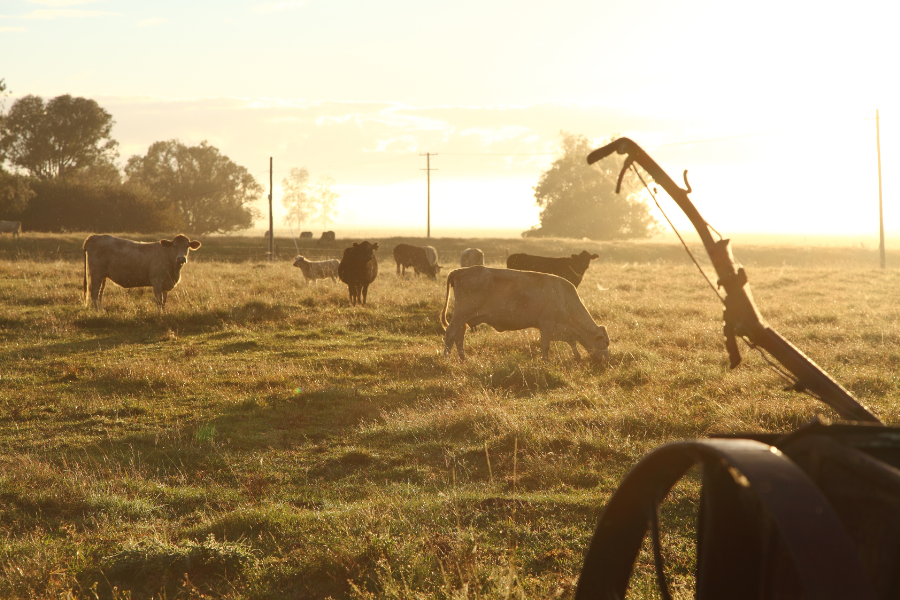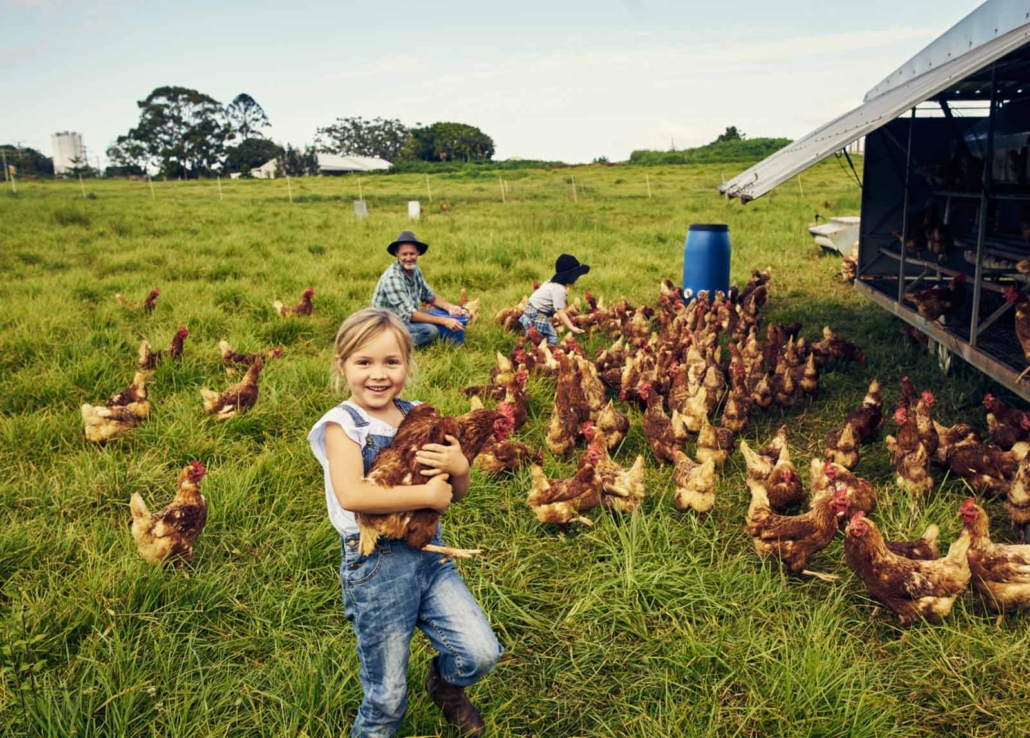Running a family farm demands effective time management. Weekly planning ensures you stay organised, boost productivity, and reduce stress, so you can focus on long-term farm success. This guide breaks down tasks, helps you prioritise, and introduces time management techniques to optimise your week.
Why Weekly Planning is Essential for Farmers
Weekly planning gives you a clear overview of upcoming tasks. As a result, you can stay proactive and track your progress. By setting time aside to plan, you can focus on the most important activities and avoid last-minute stress.
Three (3) Effective Weekly Planning Steps
Planning can be broken down into three key stages:
- Yearly Planning: First, reflect on the past year and set business and personal goals. Prioritise these and then schedule them into a yearly calendar.
- Quarterly Planning: Next, break your yearly goals into quarterly milestones. Review your progress and adjust plans as needed.
- Weekly Planning: Finally, each week, review your quarterly goals and set the top priorities. Block out family time before scheduling your work commitments.
Two (2) Time Management Techniques for Farmers
Techniques that ensure farm tasks are completed efficiently, improving focus and productivity.
- Time Blocking: Allocate time blocks for specific tasks like emails, maintenance, or personal development. This keeps you focused and prevents constant task switching.
- Task Bucketing: Group similar tasks into “buckets,” such as finance or operations, and assign time slots to complete them.
Prioritising Your Farm Tasks
To prioritise effectively, use Stephen Covey’s Time Management Matrix, which categorises tasks into four quadrants:

- Urgent and Important: Tasks that require immediate attention, like handling livestock emergencies.
- Important but Not Urgent: Long-term planning and strategic activities, like crop rotation.
- Urgent but Not Important: Tasks that may feel pressing but can be delegated, like answering some non-essential emails.
- Neither Urgent nor Important: Low-value tasks that can often be eliminated, like excessive social media scrolling.
Focus on tasks in the first two categories to maximise productivity and keep your farm running smoothly.
Tools for Successful Weekly Planning
To stay organised, choose the right tools:
- Whiteboard or Paper: For quick note-taking and brainstorming.
- Email Calendar: To manage personal and administrative tasks.
- Task Management System: For handling business operations and delegating tasks to your team.
Unlock the Power of Weekly Planning for Your Farm
Weekly planning allows you to control your time, improve productivity, and reduce farm-related stress. Whether you prefer time blocking and/or task bucketing, consistency is key.
For our clients, we offer a detailed 1.25-hour course on Weekly Planning to help you get started quickly. Feel free to share these resources with your team.
Ready to get started? Book a FREE Discovery Call with one of our experts today to receive personalised advice on optimising your weekly planning or integrating a task management system into your farm operations. Let’s make your time work for you and keep your farm running smoothly!
If you found this article helpful, share it with your network to help others unlock their farming potential. Don’t forget to like and follow us on social media for more insightful tips: Facebook, Instagram, and LinkedIn. Let’s empower more farmers together!

 Enable Ag
Enable Ag Enable Ag
Enable Ag
 Enable Ag
Enable Ag

 Enable Ag
Enable Ag


 Enable Ag
Enable Ag
 Enable Ag
Enable Ag
